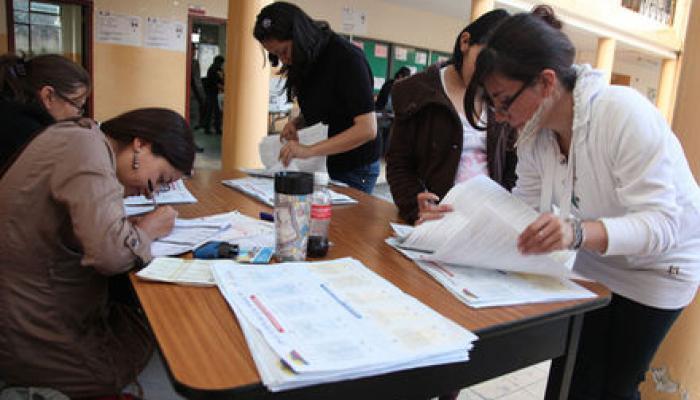Quito, February 4 (RHC)-- Ahead of presidential elections, Ecuador is rolling out a plan to make it easier for people with disabilities to vote. For the upcoming presidential elections in Ecuador people with a disability will have preferential or home-assisted voting thanks to a plan promoted by the current government of Rafael Correa.
Ecuadoreans will elect their new president on February 19th, and one of the candidates is disabled. Lenin Moreno served as Correa's vice president from 2007 to 2013 and has been in a wheelchair since being shot in 1998. He has since served as special envoy on disability and accessibility at the United Nations.
For the past 10 years, since the government of Rafael Correa took office, the government has focused on ensuring people with disabilities are treated with respect and dignity through several foundations and initiatives across the country.
The Electoral Council, the Disability Council and the Federation of Taxi Drivers began this year's campaign called "They Have a Right to Vote,” which will include voting from home, voting center preference and assisted voting in the case of anyone who needs a relative or spouse to help with the voting process.
During the elections, more than a 1,000 electoral observers will be dedicated to assuring that the 345,467 people with a disability registered to vote can do so. Some 887 people will vote from their homes on February 17, two days before the election, across the 24 provinces in the country. Their votes will be sealed and counted on February 19th.
Ecuador Promotes Program to Ensure Disabled Can Vote

Related Articles
Commentaries
MAKE A COMMENT
All fields requiredMore Views
- Trump reportedly orders military to draw up plans to seize Panama Canal
- UN agency says migrant deaths hit record number in 2024
- Bolivia demands sovereign access to the sea and begins a new stage in relationship with Chile
- Ecuador's Electoral Debate: Luisa González urges Noboa not to lie to the people and keep his campaign promises
- Thousands of protesters in Spain call for a boycott of Israel and an end to genocidal attacks on Gaza

